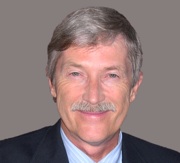If you’ve had an especially stressful life event lately, you may be at increased risk for breast cancer. When a team of researchers from Ben-Gurion University compared 225 women younger than 45 years of age who had breast cancer to 367 healthy women of comparable age, they discovered that two or more “severe life events” increased the risk of breast cancer by 62 percent. Dr. Ronit Peled, head of the study, described losing a parent, close relative, or spouse; or divorce of parents before age 20, as “severe life events.”
Other researchers have also found a link between stressful life events and increased risk for the recurrence of breast cancer. For example in a study of 94 patients with breast cancer, those who experienced a traumatic event remained cancer-free an average of 30 months; those who had less stressful life events were cancer-free for 37 months; and those without a severe or moderate stressful life event were cancer-free for 60 months.
Stress Hormones and Breast Cancer
Ongoing stress can threaten breast-health, in large part, because it disrupts the natural daily natural rhythm of circulating hormones. For instance, one hormone that rises with stress is cortisol, which has been directly linked to breast cancer. Cortisol has a daily rhythm that reaches its lowest level during sleep, it climbs to its highest level by late morning, and then subsides in the afternoon. But when you experience ongoing stress—especially high-pitched, trauma-based stress—the natural ebb and flow of circulating cortisol loses its rhythm and instead, remains elevated. In turn, chronic levels of elevated cortisol weaken the ability of your immune system to fight disease, including not only breast cancer, but also high blood pressure, elevated blood glucose (linked with increased risk of weight gain and diabetes), and osteoarthritis.
Breast-Smart Strategies
Reducing stress will reduce your risk for breast cancer occurrence and recurrence. Some strategies:
• Find someone who is empathetic and compassionate to talk to about stressful situations;
• Try meditation, yoga, or tai chi to calm the mind and immune system, which will bring your hormones into a better rhythm;
• When you are under stress your body creates more blood glucose, which provides an ideal environment for some types of cancer cells to flourish. One solution is to reduce or eliminate simple carbohydrates, such as white flour and sugar, and instead, make calories count with lots of nutrient-dense foods such as fresh fruits, vegetables, and whole grains.
Still another breast-smart strategy is to burn up extra glucose and body fat with aerobic exercise and other forms of physical activity. Each of these solutions will not only reduce your risk for breast cancer, they will make life a lot more enjoyable.
Larry Scherwitz, PhD, is a behavioral scientist who specializes in mind-body medicine and reversing heart disease and obesity through lifestyle changes—without drugs or surgery. He has conducted research on studies published in prestigious medical journals, ranging from The Journal of the American Medical Association to The Lancet; he is also co-author of The Enlightened Diet. Call him at 415.810.7874, or visit him at www.Enlightened-Diet.com to take his FREE What’s Your Eating Style? Quiz, and to learn more about his Whole Person Nutrition Program for wellness, weight loss, heart-health, coaching, and books.






Add a Comment4 Comments
My mom had Breast Cancer. She had 4 children. 3 of us were nursed for around 9 months.
February 6, 2010 - 3:45pmThis Comment
unfortunately the only sources are anecdotal. Perhaps Dr. Scherwitz can help - does he know of even one single case of breast cancer in a woman who has breast-fed for longer than six months? I'm sure he will agree that there are no such cases on record. Because studies linking breast cancer risk to breastfeeding are not available and have never been done under the scientific method (since there is no funding available for such a study), the truth is that women will need to check with their own inner wisdom on this issue. Formula companies are quite active in opposition to this theory, for economic reasons. Nestle in particular is guilty of suppressing this anecdotal wisdom - they are more interested in their bottom line, than they are in promoting health for women and babies.
October 5, 2009 - 6:01pmThis Comment
the best way to eliminate breast cancer risk (eliminate - not reduce) is to breast feed for at least one year.
October 4, 2009 - 10:07amThis Comment
Chella,
Thank you for writing! Can you give us your sources on this?
October 5, 2009 - 8:52amThis Comment